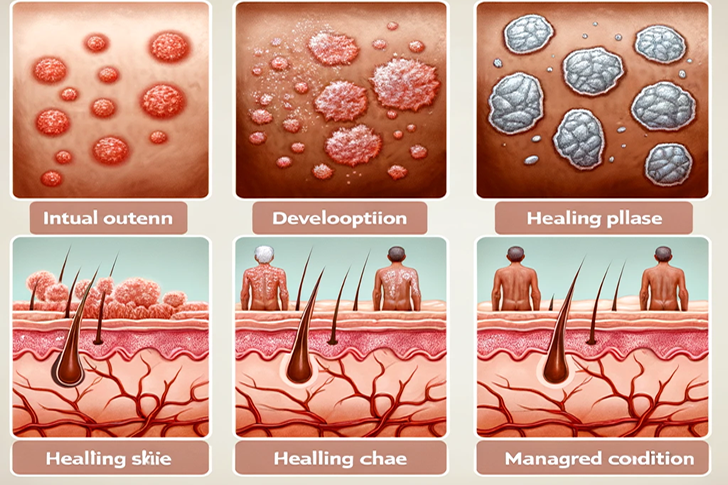What You Need To Know About Scalp Psoriasis: Causes And Cures
Psoriasis is a chronic skin condition, recognizing its onset, understanding the healing process, and exploring management strategies are essential for those affected. We’ve carried out detailed research know what is psoriasis and how to treat it.

Understanding Scalp Psoriasis
Scalp psoriasis is a chronic autoimmune condition that speeds up the lifecycle of skin cells. This rapid turnover leads to the buildup of cells on the surface of the skin, forming scaly patches that may itch or burn. It’s part of the broader spectrum of psoriasis, which can affect any part of the body but often manifests on the scalp because of its high concentration of hair follicles and oil glands.
Causes and Risk Factors
The exact cause of scalp psoriasis remains unknown, but it is believed to be a combination of genetic and environmental factors. About 2-3% of the global population is affected by psoriasis, indicating its prevalence. Several risk factors can trigger or worsen the condition, including:
- Genetics: A family history of psoriasis increases one’s risk significantly.
- Immune System: Scalp psoriasis is an autoimmune disorder, where the immune system mistakenly attacks healthy skin cells.
- Environmental Triggers: Stress, smoking, and infections are known to exacerbate psoriasis.
- Hormonal Changes: Fluctuations in hormones, particularly during puberty and menopause, can trigger outbreaks.
Indicators
The indicators of scalp psoriasis include:
- Red patches of skin covered with thick, silvery-white scales.
- Dry scalp that may bleed when scales are picked or scratched off.
- Itching and soreness around the patches.
- Temporary hair loss due to scratching or removal of the scales.
Current Treatments
While there is no cure for scalp psoriasis, several treatments can help manage indicators and reduce outbreaks:
- Topical Treatments: Medicated shampoos, creams, and ointments containing coal tar, salicylic acid, or corticosteroids can help reduce inflammation and scale buildup.
- Light Therapy: Exposure to ultraviolet light under medical supervision can slow skin cell turnover, reducing scaling and inflammation.
- Systemic Treatments: For severe cases, oral or injected medications that work throughout the body may be prescribed to suppress the immune system or alter the lifecycle of skin cells.
- Biologics: These are newer drugs that specifically target the immune system’s pathways involved in the development of psoriasis.
- Natural Remedies and Lifestyle Changes: Diet changes, stress management techniques, and natural remedies like aloe vera or apple cider vinegar can also provide relief.







Recent Comments